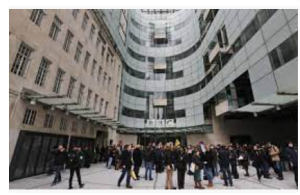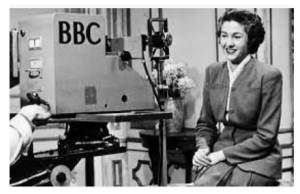Why communication is key to good team working
February 28, 2022
Tom Macdonald Net Worth, Bio, Wiki, Age, Family, Parents, Girlfriend, Songs, Tattoos
March 29, 2022The British Broadcasting Corporation is one of the longest-serving state broadcasters on the planet. It was established in the early 1920s as a private concern. However, the Government soon realised that this media of Radio and Television needed to be regulated and controlled a lot more than the written press. Radio and Television had the power to reach more people in the UK, and it did not require the need to read. Literacy levels were not as high then as they are now.
By 1936 the production of television programmes was in full swing. Via a series of transmitters throughout the country, images could be sent directly to homes. Televisions were very expensive and needed to have an aerial attached to the roof to receive the signal. As with today, the need for a TV aerial repair Gloucester based company like https://steveunettaerials.co.uk/ is just as important.
Money was an issue for the BBC, and it also had problems attracting acts to appear. The Comedians and Actors of the day were still loyal to the theatre and Cinema. They saw television as a “flash in the pan” and wouldn’t amount to much. Lord Reith saw things very differently. He viewed television as a danger to the good social order of the “highest magnitude”. Therefore, he was deemed to be the best person to run it!
Reith’s primary insistence was that the BBC should Educate, entertain and inform. These “Reithian Principles” are enshrined in the charter and doctrine of the BBC today. It’s hard to see where shows like Strictly Come Dancing and The Mighty Boosh might come under all three of those categories, but it shows how much the BBC has had to change following the introduction of Independent Television, which has no such principles, although they generally try to follow them.
The licence fee was introduced to fund the channels. If you own a television that can receive BBC output, then you must own a licence for the Television. In the days before streaming services and Sky Satellite channels, the BBC and ITV were the only options. BBC2 was created in the 1960s as a way to expand the Corporation’s output and offer a slightly alternative set of programmes. The Channel has had problems competing with its more affluent competitors. Whilst the lack of adverts has meant that the channels shows are not constantly interrupted with adverts or subject to product placement, the BBC has been unable to create lavish shows and purchase sporting events like Formula one and or anything other than highlights of Premier League Football.




